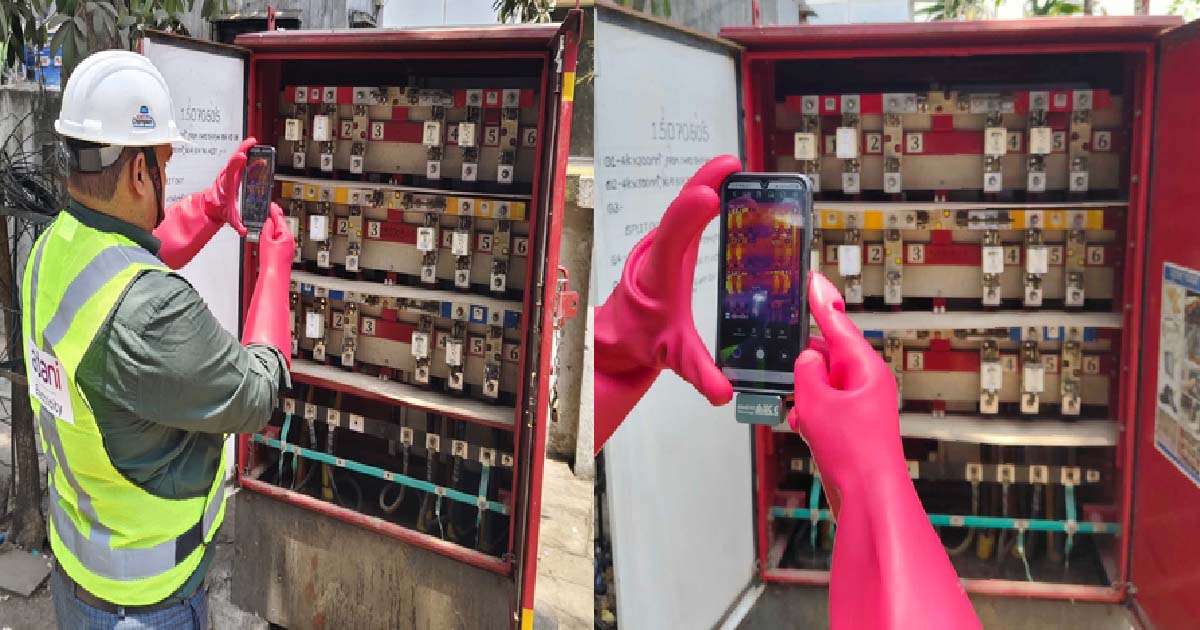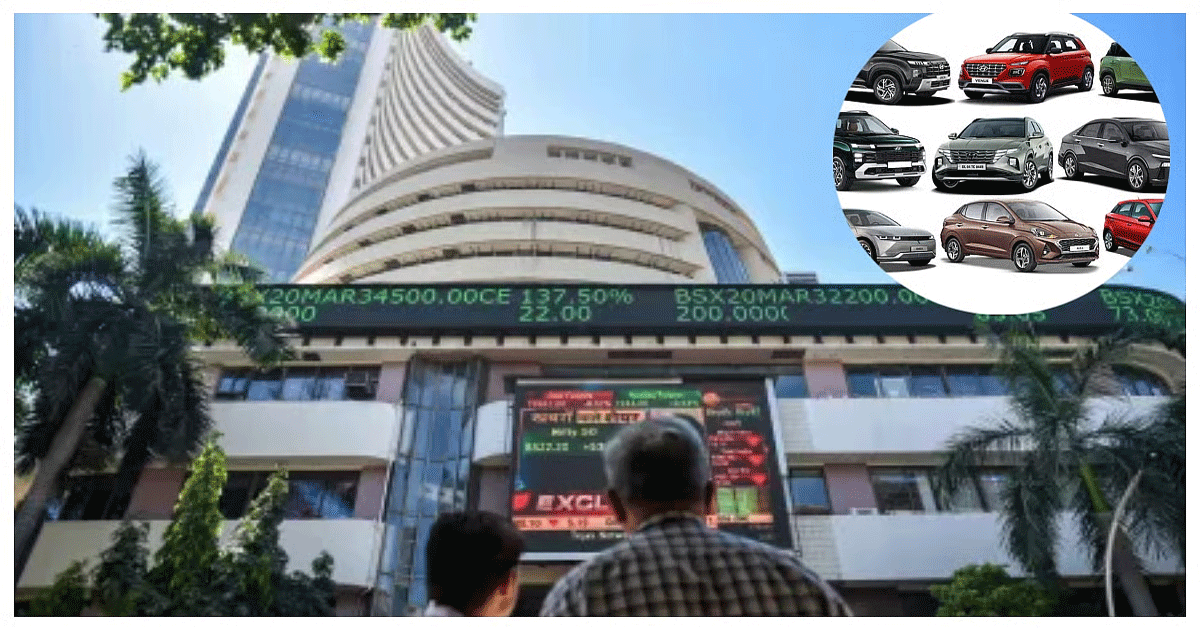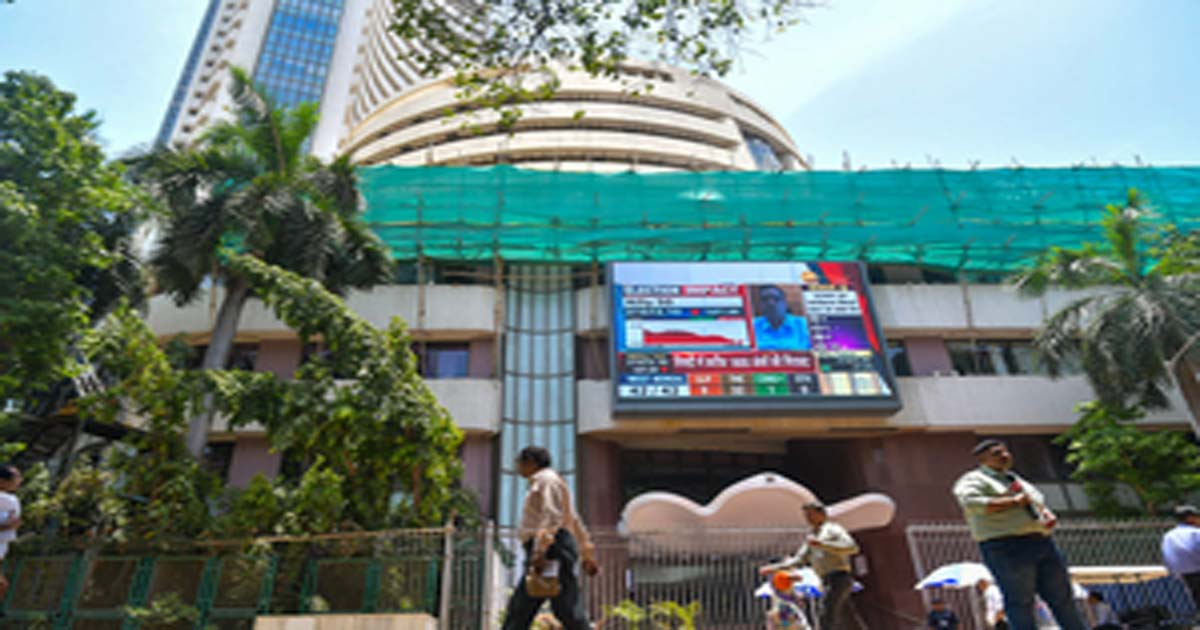Business
Adani Electricity empowers its ‘Power Warriors’ with advanced mobile thermal imaging tools

Mumbai, May 22: As Mumbai’s energy demand grows rapidly, Adani Electricity has taken a major step toward enhancing power reliability by equipping its frontline teams — “Power Warriors” — with advanced mobile infrared (IR) imaging tools.
These compact, smartphone-enabled devices are transforming how power infrastructure is monitored and maintained across the city.
Mumbai’s fast-paced redevelopment and climate shifts place growing pressure on power assets like transformers, switchgear, and distribution panels.
To stay ahead of potential faults, Adani Electricity has rolled out mobile thermal imaging devices that allow on-the-spot detection of equipment stress or overheating—often before any outward sign of failure appears.
“Our field teams can now identify and address developing issues during their first site visit — preventing power interruptions before they happen,” said the company.
With this innovation, the teams can detect and act on faults instantly and there is no need for return visits or delays.
Potential failures are caught early, ensuring power remains stable even during peak loads. Consumers experience fewer unplanned outages and faster resolution of service issues. Field decisions are data-driven, visual, and shared in real-time across teams.
An Adani Electricity spokesperson said, “This shift marks a transition from reactive maintenance to a predictive model. The new IR tools are being fully integrated into Adani Electricity’s digital operations platform”.
“Soon, every thermal image captured in the field will trigger intelligent workflows, using AI and machine learning to flag issues, allocate resources, and track trends across the grid. This creates a virtuous loop — smarter diagnostics, faster interventions, and stronger system resilience,” the spokesperson added.
Adani Electricity’s vision is to deliver a power supply that’s not just reliable but anticipates challenges before they reach your doorstep.
By giving field teams cutting-edge tools to act faster and smarter, we’re reinforcing our promise to every Mumbaikar — a city that stays switched on, no matter what, the company said.
Business
Banks Expect Increased Credit Demand Across Retail, MSME, & Agricultural Segments After GST Reforms

New Delhi: With the Goods and Services Tax (GST) reforms, banks expect increased credit demand across retail, MSME, and agricultural segments as incomes rise and business investment picks up.
According to Ajay Kumar Srivastava, MD and CEO, Indian Overseas Bank, the reform will create a strong effect across the economy, leading to improved cashflows for distributors and retailers, greater working capital access for small businesses, and expanded credit requirements amid rising demand.
“Overall, this decision acts as a catalyst for inclusive growth and economic transformation aligning itself to India’s vision of Viksit Bharat”, said Srivastava. This move makes taxation more transparent and easier to follow. “We expect these measures will drive an estimated growth in consumption over 8-10 per cent in the next two quarters in rural markets, particularly benefiting farmers through reduced costs on agricultural products where GST has been brought down from the 12 per cent to 5 per cent,” according to Srivastava.
The price cuts on daily essentials like dairy products, household items, and consumer durables will provide more relief and reduce the burden to the consumers. The reduced GST on vehicles, electronics, and housing materials will create demand for these segments, while making insurance policies completely tax-free will enhance financial inclusion.
According to Sanjay Agarwal, Senior Director, CareEdge Ratings, GST rate cuts result in a decrease in the final price of goods and services, which enhances consumer purchasing power and could stimulate demand across various sectors.
The impact is generally visible in the consumer durables segment. Lower GST rates on automobiles, electronics, and appliances not only make these products more affordable but also expand the addressable market to include price-sensitive consumers who were previously priced out.
“Banks could see an increase in auto loans, personal loans for electronics purchases,” he mentioned. Outstanding housing loans, vehicle loans, credit card and consumer durables account for around 16.7 per cent, 3.5 per cent, 1.6 per cent and 0.1 per cent of banking credit, respectively.
Business
Auto Stocks Zoom On GST Rate Cuts, Hyundai Tops Gainers As Market Anticipates Festive Season Boost

Mumbai: On Friday, auto stocks saw a strong rally after the GST Council’s decision to cut tax rates on small cars and motorcycles. The BSE Auto Index rose by 1.30 percent, closing at 58,883.09 points. This surge came as the market responded positively to the new two-slab GST system — 5 percent and 18 percent — announced to take effect from September 22, the first day of Navaratri.
Hyundai Motor India led the auto sector gains, rising 2.69 percent on the BSE. Other top performers included Eicher Motors (+2.43 percent), Mahindra & Mahindra (+2.34 percent), and Ashok Leyland (+2.22 percent).
Maruti Suzuki also climbed 1.70 percent, while TVS Motor went up 1.28 percent. Smaller gains were seen in Sona BLW (0.80 percent), Bharat Forge (0.77 percent), Tata Motors (0.63 percent), Bajaj Auto (0.22 percent), and Hero MotoCorp (0.21 percent).
The reduction in GST rates from 28 percent to 18 percent on many popular vehicle categories is being seen as a major positive move. It affects petrol, LPG, and CNG vehicles with engine sizes under 1,200cc and length under 4,000 mm, and diesel vehicles under 1,500cc and 4,000 mm. Two-wheelers like motorcycles under 350cc will also now attract 18 percent GST, down from the current 28 percent.
Experts believe the decision will benefit first-time buyers and middle-class families, especially during the upcoming festive season. According to Ajit Mishra of Religare Broking, the move is ‘timely and will inject fresh momentum’ into the auto sector. Industry players say this will not only boost sales but also investor confidence in automotive stocks.
Business
Indian stock market opens higher, Nifty above 24,700

SHARE MARKET
Mumbai, Sep 5: The Indian benchmark indices opened higher on Friday, buoyed by transformative rate reductions announced by the GST Council across sectors as buying was seen in the auto, IT and PSU bank shares in the early trade.
At around 9.38 am, Sensex was trading 140.72 points or 0.17 per cent up at 80,858.73 while the Nifty added 52 point or 0.21 per cent at 24,786.30.
Nifty Bank was up 4.05 points or 0.01 per cent at 54,079.50 The Nifty Midcap 100 index was trading at 57,291.20 after adding 332.05 points or 0.58 per cent. Nifty Smallcap 100 index was at 17,704.70 after gaining 82.75 points or 0.47 per cent.
According to analysts, Nifty indicated an optimistic positive move, with anticipation of positive cues from the GST rate outcome, which would decide the further course of the market in the coming days.
“The index would need a decisive move past the important 50EMA level at the 24,800 zone, which can trigger a fresh further upward move along with the broader markets beginning to participate to support the benchmark indices,” said Vaishali Parekh, Vice President (Technical Research), PL Capital.
The 24,500 zone shall continue to remain as the important support zone for the index, she added.
Overall, the market is showing resilience within a consolidation range. With improving technical momentum and steady domestic inflows, the near-term bias remains positive, said experts.
“Traders should adopt a buy-on-dips strategy and focus on stock-specific opportunities in leadership sectors like banking, IT, and auto,” said Mandar Bhojane from Choice Broking.
Meanwhile, in the Sensex pack, M&M, Trent, Tata Motors, Asian Paints, Power Grid and Maruti Suzuki were the top gainers. Whereas, ITC, Hindustan Unilever Limited, Sun Pharma and HDFC Bank were the top losers.
In the Asian markets, Bangkok, Japan, Seoul, Hong Kong and China were trading in green.
In the last trading session, Dow Jones in the US closed at 45,621.29, up 350.06 points, or 0.77 per cent. The S&P 500 ended with a gain of 53.82 points, or 0.83 per cent, at 6,502.08 and the Nasdaq closed at 21,707.69, up 209.97 points, or 0.98 per cent.
On the institutional front, foreign institutional investors (FIIs) were net sellers as they sold equities worth Rs 106.34 crore on September 4, while domestic institutional investors (DIIs) purchased equities worth Rs 2,233.09 crore.
-

 Crime3 years ago
Crime3 years agoClass 10 student jumps to death in Jaipur
-

 Maharashtra11 months ago
Maharashtra11 months agoMumbai Local Train Update: Central Railway’s New Timetable Comes Into Effect; Check Full List Of Revised Timings & Stations
-

 Maharashtra11 months ago
Maharashtra11 months agoMumbai To Go Toll-Free Tonight! Maharashtra Govt Announces Complete Toll Waiver For Light Motor Vehicles At All 5 Entry Points Of City
-

 Maharashtra12 months ago
Maharashtra12 months agoFalse photo of Imtiaz Jaleel’s rally, exposing the fooling conspiracy
-

 National News11 months ago
National News11 months agoMinistry of Railways rolls out Special Drive 4.0 with focus on digitisation, cleanliness, inclusiveness and grievance redressal
-

 Crime11 months ago
Crime11 months agoBaba Siddique Murder: Mumbai Police Unable To Get Lawrence Bishnoi Custody Due To Home Ministry Order, Says Report
-

 Maharashtra10 months ago
Maharashtra10 months agoMaharashtra Elections 2024: Mumbai Metro & BEST Services Extended Till Midnight On Voting Day
-

 National News12 months ago
National News12 months agoJ&K: 4 Jawans Killed, 28 Injured After Bus Carrying BSF Personnel For Poll Duty Falls Into Gorge In Budgam; Terrifying Visuals Surface












